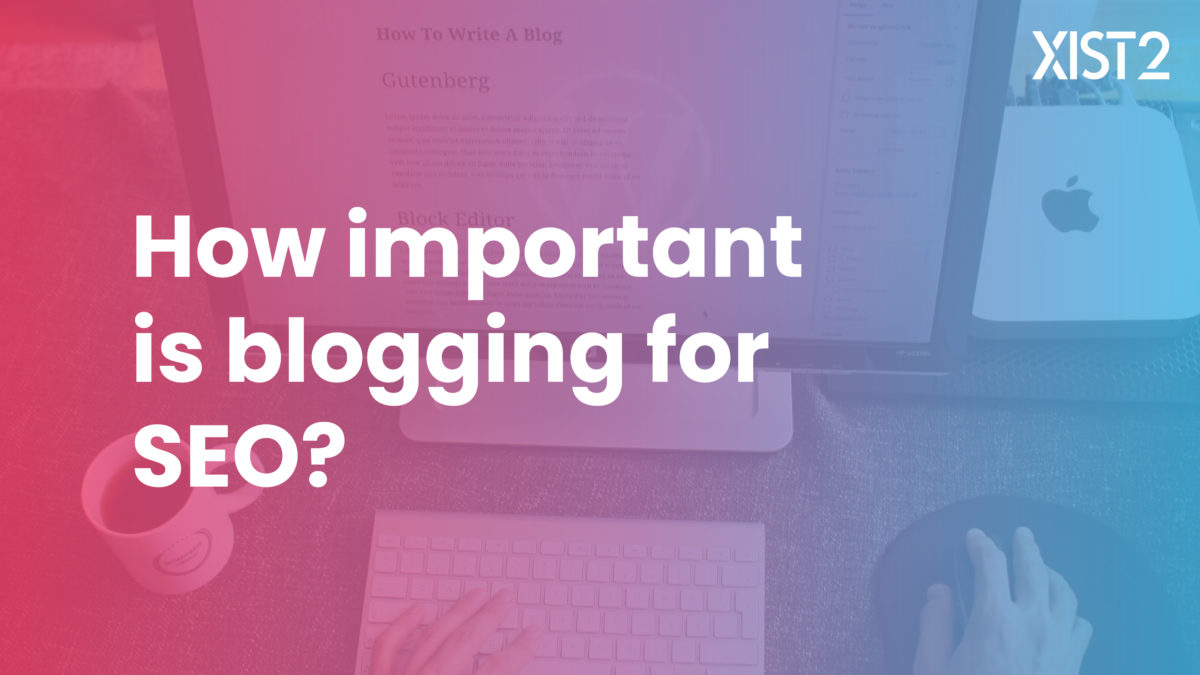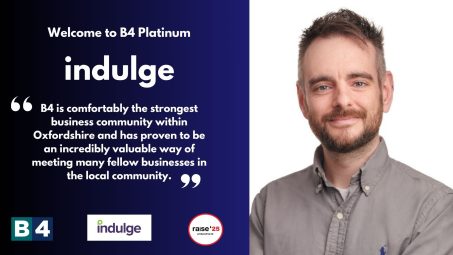
How Important is Blogging for SEO?
If you’re new to SEO, you will know it can certainly be overwhelming. You’ve got on-page SEO, off-page SEO and technical SEO to think about, all of which require specialists in the field to optimise.
Between all the technical jargon and complex strategies, it is sometimes hard to think about quick, practical fixes that you can easily do yourself to better optimise your website. Blogging is a great on-page SEO tactic that you can do to help boost your rankings, authority, and keyword landscape.
What is SEO?
SEO stands for search engine optimisation, and in simple terms it is the process of improving your website to increase your visibility on the Google results page. The better visibility your pages have in the search results, the more likely you are to attract potential customers to your website.
The ultimate goal is always to reach page 1, position 1 on the search engine results page (also known as the SERP). Page 1 captures nearly 75% of the organic traffic clicks, which is why you want to ensure that your pages are ranking here. If you think about it, how often do you click to the 2nd page for search results?
Search engines like Google, Bing and Yahoo have bots called spiders which ‘crawl’ pages on the internet, going from site to site and gathering information which then gets put into an ‘index’, which is like a massive library of web pages.
Then, the search engine uses an algorithm involving a large number of ranking factors to determine which web pages in this library are most relevant to the user’s search. This is where blog writing can come in very useful…
How does blogging help SEO?
Target long tail searches
If you’re starting out with SEO, you’ll want to be aiming for the most relevant keywords possible for your business. The problem is that so is everyone else! The Google search results page is extremely competitive, and when it comes to broad terms that command a high number of monthly searches, it is unlikely you will start ranking immediately.
Your best bet is to instead focus on long tail searches. Long tail searches are longer, more specific search terms that are likely to have a smaller volume of searches but are much less competitive, meaning that you are much more likely to make it on to page 1!
For example, instead of targeting ‘walking boots’, you could aim to target ‘best walking boots for mountain hiking’. The advantage of targeting long-tail terms is that you are specifically targeting an in-market audience who will be highly motivated to learn about whatever you are writing. Don’t forget to include lots of links to important pages and CTAs (call to action) throughout your blog to help guide your user along their journey.
Opportunities for internal linking
There is a lot of talk about links in SEO, be that internal links or external backlinks. Internal links are very easy for you to create, and blogs are a great place to put these. If we continue using the example from the last point, if you have targeted your audience through your long tail search term and they have landed on your blog about mountain hiking boots, you can place several internal links throughout the blog (to your chosen hiking boot product pages), to encourage the user to make a purchase.
Be sure to make use of your anchor text when you place your links. Anchor text is the characters/words that you chose for the clickable hyperlink. When you use a keyword as anchor text, it gives Google an idea of what your page is about, so it can further decide on its relevancy to the user.
Increases the user’s time on the page
Whilst most of the Google algorithm remains top secret, they have given many clues to suggest that session time is something they give value to. Googles number 1 priority is to provide people performing searches with the information they are looking for. So, if a user lands on your page, scrolls down and immediately leaves, it suggests to Google that your page is not very helpful.
Someone who comes to your web page to view a specific blog post, is much more likely to be interested in the topic after having searched the long tail term. Therefore, they’re going to stick around for a while reading about it – telling Google that your website is useful, relevant, and engaging. Say hello to increased rankings!
Increase credibility and authority
As a user, you are more likely to trust a website with hundreds of pages of content about the best hiking boots, in comparison to a website with just 1 page. When you position yourself as a knowledgeable source, consumers are more likely to trust you and so is Google!
Google is smart enough to realise that if you have a blog full of content on different types of walking boots, water sports shoes and ski boots that you are probably going to be a useful, relevant source for someone who searches outdoor sports shoes. The more information you have, the more credible you are in Google’s eyes.
Blogging tips
Keyword Research
When writing a blog, you should always be considering your target audience and buyer personas. So, you need to find out what type of content they are going to be interested in! An SEO agency would work by conducting keyword research around your core services/offerings and find some particularly lucrative terms with high search volumes that you would like to rank well for.
If you just start writing blogs with no strategy or direction, they are unlikely to fall into the hands of your target audience. Choose 20-25 key terms and write as much relevant, engaging content around those as possible.
Blog often
A realistic target to aim for is 1-2 blog posts per week. This tends to be the sweet spot for most companies. Search engine algorithms love to see you updating your website regularly, as this implies that all your content will be up-to-date and relevant so that the user can find exactly what they are looking for.
Avoid low word count
Search engines such as Google actually penalise websites for having low word count pages (below 300 words). Aim to write over 1000 words per blog, as blogs of this length do much better in terms of ranking.
This might seem like a lot to write, but it will pay off! Make sure that your content is high quality, original and uses a lot of highly relevant content around the subject of your target keyword.
Whilst spending time content writing might not feel like a priority, it will do wonders for your SEO firepower. If you don’t have time or resources to write 1000-2000 words a week and would like to discuss a copywriting retainer, please get in touch. We are an SEO agency based in Oxford and would be really happy to discuss what may work for you and your business. Email us at info@xist2.com or call us on 01993 835 117.
More in Web & Social

Indulge upgrade to Platinum Membership
Local digital agency Indulge have enjoyed a great first year back in the B4 community, so much so that director Paul Wood has upgraded to Platinum Membership. Here we find out more about Paul and Indulge.

How do I hire a web development agency?
It can be tough finding a good web development agency – mainly because there are so many agencies out there, and it can be hard to know which one is the right fit for your project.

How do I choose a good web design agency?
The first thing to appreciate when choosing a good design agency is that there is no one-size-fits-all solution, so you’ll need to find an agency that can tailor its services to meet your unique requirements.
From this author

How do I hire a web development agency?
It can be tough finding a good web development agency – mainly because there are so many agencies out there, and it can be hard to know which one is the right fit for your project.

How do I choose a good web design agency?
The first thing to appreciate when choosing a good design agency is that there is no one-size-fits-all solution, so you’ll need to find an agency that can tailor its services to meet your unique requirements.

Do web agencies use WordPress?
Why agencies back WordPress as a CMS


